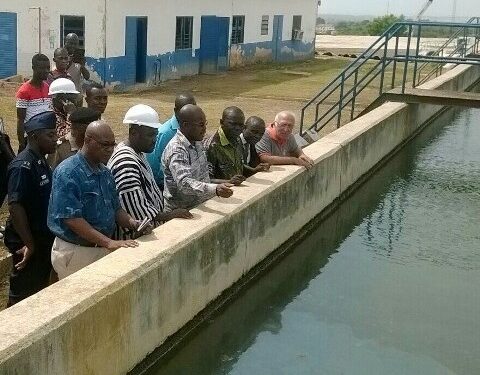Government’s ongoing fight against illegal mining, popularly known as galamsey, is facing renewed criticism as the Ghana Water Company Limited (GWCL) warns of a possible shutdown of the Winneba treatment plants due to worsening pollution of major water sources.
According to officials, turbidity levels in key rivers have spiked dangerously, forcing the company to double the amount of chemicals used in treating discolored water, a situation they say is unsustainable.
At the 2025 ESG Sustainability Summit in Accra, Economist Professor Godfred Bokpin cautioned that government’s policy choices do not reflect the urgency of the crisis. He warned that illegal mining continues to endanger Ghana’s water security while draining the economy.
“In 2023 alone, Ghana spent more than 11 million dollars importing water from countries such as Togo, Nigeria, Spain, and the UK,” Prof. Bokpin revealed. “The pattern is clear, those who can afford it are turning to imported water. This is the price we are paying for neglecting our water bodies.”
He stressed that destroying rivers and farmlands in the name of mining and later planting trees cannot restore the environment overnight, noting that the slow pace of government’s interventions undermines public confidence.
“This government has been in power for almost eight months. If we were serious about ESG at the national level, we should already be seeing visible improvements in our water bodies,” he added.
Meanwhile, the Ministry of Lands and Natural Resources has announced a shift in its regulatory framework. Last week, the Minister, who also oversees Environment, Science, and Technology, directed the Attorney General to revoke L.I. 2462 — a key regulation governing mining practices as part of reforms.
Technical Director for Lands at the Ministry, Joseph Osiakwan, also speaking at the summit, urged patience as the government rolls out the Blue Water Guide Initiative to restore polluted rivers.
“The reclamation process will take time,” he said. “Just as tree planting takes years to yield results, rehabilitating our rivers will require persistence. The ‘Tree for Life’ reforestation programme is targeting mined-out areas, and its success must be measured over time.”
The warnings come as environmental groups intensify calls for decisive action, arguing that illegal mining is not only threatening Ghana’s water supply but also undermining food security, health, and economic stability.
Read Also: Gov’t Pushes for Marine Climate Mandates in Environmental Impact Assessments

























